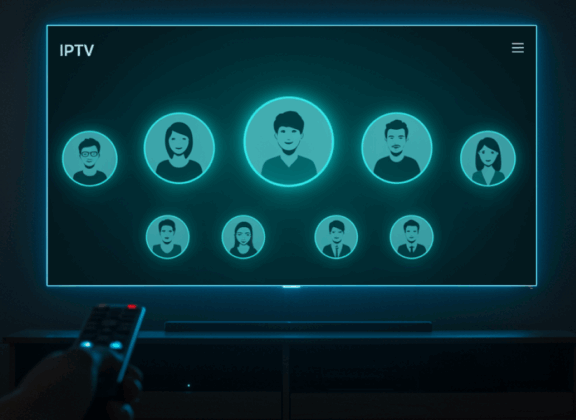In recent years, IPTV has become a go-to solution for accessing television content. With thousands of channels, films, and TV shows just a click away — along with advanced control features and replay options — it’s already a modern viewer’s dream. But the evolution doesn’t stop there. Artificial intelligence (AI) is changing the IPTV landscape today, offering smart TV and set-top box owners a more intelligent, intuitive, and personalized experience on every screen.
Tailored Content Suggestions with Machine Learning
Gone are the days of endlessly scrolling through channel lists or streaming libraries in search of something to watch. Thanks to machine learning IPTV systems, your viewing preferences are no longer a mystery. AI tracks what you watch, when you watch it, and what genres you prefer, then uses that data to recommend content you’re actually likely to enjoy.
If you’re a sports fan, for example, you’ll get suggestions for upcoming matches or live events. Crime drama lovers will see the latest releases highlighted automatically. This kind of smart content discovery saves time and puts what you want to watch right at your fingertips — it’s like having a personal TV curator powered by your own habits.
Voice Assistants Replace Traditional Controls
IPTV remotes are becoming a thing of the past. Thanks to AI-driven voice control, many modern IPTV platforms now let you navigate, search, and manage your viewing using natural language. Just say, “Play the news” or “Find a romantic comedy from 2023,” and your system will do the rest.
This voice assistant entertainment control isn’t just about convenience — it also makes IPTV far more accessible. Whether your hands are full, you’ve settled in for the night, or you’re helping an older family member navigate the system, voice commands offer a frictionless alternative to buttons and menus.
Smarter, Smoother Streaming Quality
AI doesn’t just help you find content — it also improves how that content looks. Real-time video processing powered by AI can enhance visuals by reducing noise, boosting sharpness, and automatically adjusting brightness and color based on your screen and environment.
For viewers with inconsistent internet connections, adaptive streaming IPTV solutions powered by AI are especially valuable. These systems anticipate potential buffering or drops in bandwidth and adjust the video feed accordingly to ensure smooth playback. The result? Fewer freezes, less pixelation, and more enjoyable viewing — regardless of your connection speed.
Predictive Intelligence for a Seamless Experience
Another impressive feature of AI in IPTV is its predictive capabilities. By monitoring factors like network performance and user behavior, the system can foresee and react to potential issues before they disrupt your session.
Imagine your connection is weakening — your IPTV system can automatically reduce resolution to avoid buffering. In the future, AI-driven video streaming platforms may go even further, suggesting better plans, optimizing your subscription, or curating personalized channel bundles based on your individual preferences and usage patterns.
Family-Friendly Profiles and Controls
With AI, IPTV becomes a versatile solution for everyone in the household. AI can generate user-specific profiles, tailoring content recommendations to each family member. Kids get cartoons and educational shows, while adults receive curated news, sports, and films.
AI also plays a key role in parental controls. Content can be filtered by age rating, ensuring children don’t stumble upon inappropriate programming. It’s a simple way to give parents peace of mind while giving kids the independence to browse safely.
Artificial intelligence is not just enhancing IPTV — it’s redefining it. From streamlined content discovery and intuitive voice control to better picture quality and predictive problem-solving, AI is making watching TV more personal and less stressful. Users benefit from reduced effort and more time enjoying the shows they love.
Looking ahead, the role of AI in IPTV will only grow. Expect fully interactive sports broadcasts, mood-based content suggestions, and even smarter viewing interfaces. The future of television isn’t just digital — it’s deeply personal, shaped by your habits and powered by AI.
